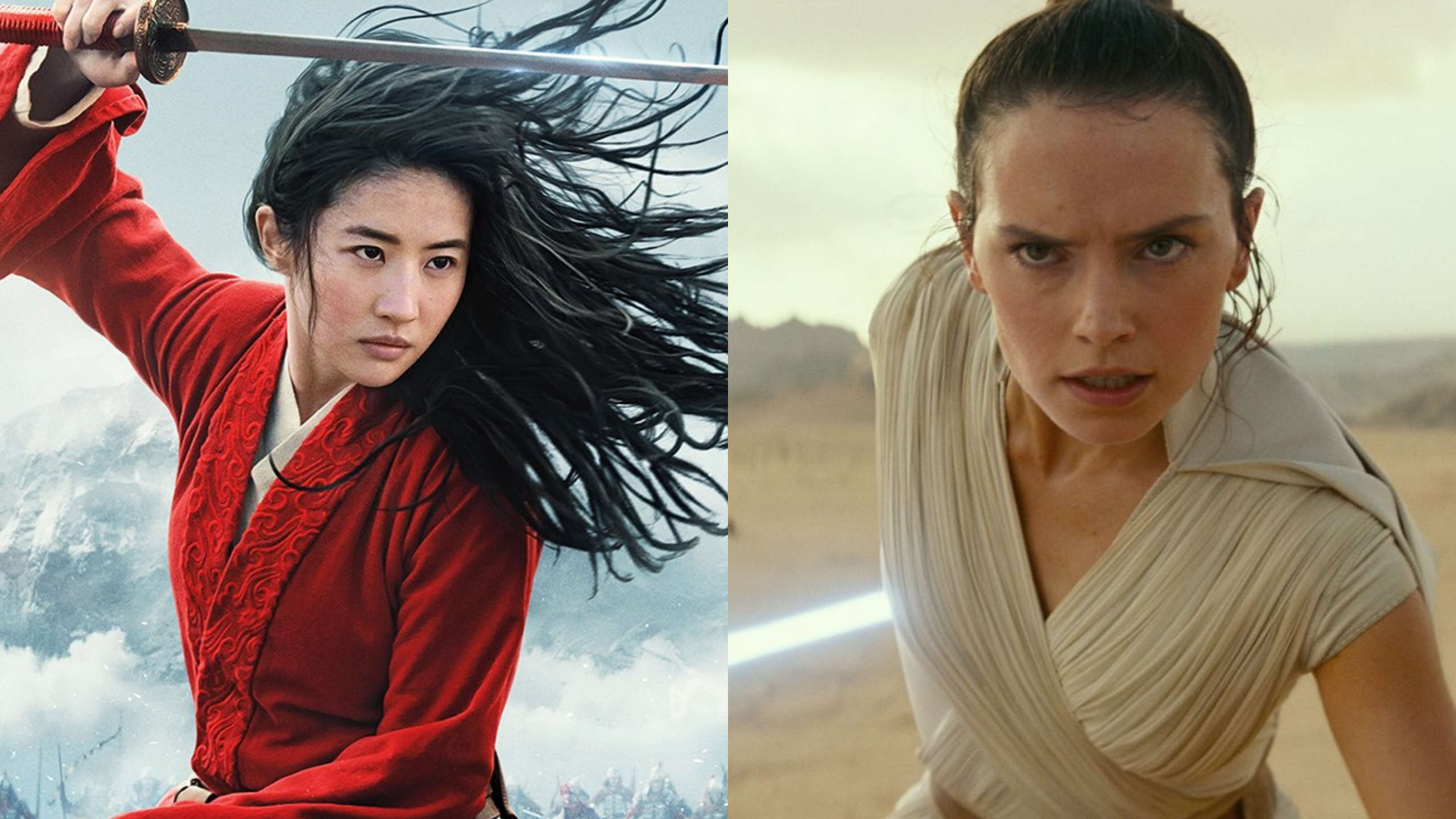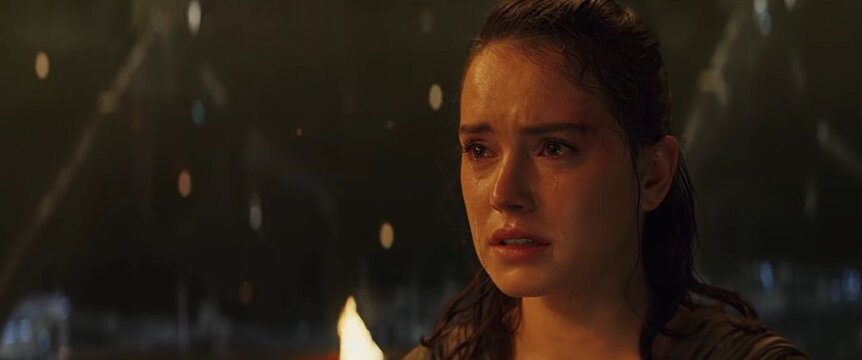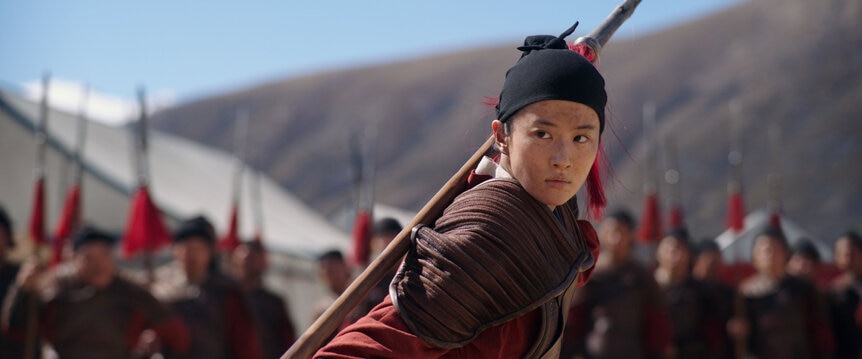Create a free profile to get unlimited access to exclusive videos, sweepstakes, and more!
What we lose when we give fem heroes 'Chosen One' status

The "Chosen One" is a storytelling trope that's been around a long time — think biblically long.
It's littered throughout genre's history, in fantasy quests and sci-fi epics and superhero origin stories. In its most generic form, it focuses on a protagonist "chosen" by fate, destiny, or some higher power to act as a kind of savior. The "Chosen One" might have powers or special abilities that separate them from the rest, they might come from an ancient lineage, or rise to power because of their courage and selfless nature. But they're rarely average, even when we're told they're no one special.
The "Chosen One," by definition, is special, extraordinary, unlike anyone else. And I'm so tired of seeing them as the kind of on-screen feminist heroes we should be proud of.
Yes, I'm talking about that recent #ReyKenobi trending hashtag — because even close to a year later, the question of that character's parentage in the Star Wars sequel trilogy is a haunting specter, looming over the best-intentioned portrayals of kickass women on screen. But I'm also talking about Buffy and Daenerys and Diana and Mulan, all the other female sci-fi fantasy heroines who've ushered in a more inclusive vision of what a hero can look like.
They're fierce. They're intelligent. They're charting a different path from the men who came before them, but they're also Chosen — marked by familial status or mysterious prophecy or unusual gifts that give them an advantage, even if that advantage is played as an overwhelming burden.
I love these women, how they rebel on-screen and spark revolutions off it — that's why I think it's time we start dismantling the fragile foundations of their "Chosen One" status.
Even if you weren't a fan of Rian Johnson's The Last Jedi, what he did for Rey's storyline in that film felt refreshingly forward-thinking. As a young woman with a deep connection to the Force, audiences long suspected Rey had to be the descendant of some Star Wars universe character. Maybe she was Luke Skywalker's daughter? Or Obi-Wan Kenobi's granddaughter? Or the child of Han and Leia? Her abilities were too great to come from nothing, but that's exactly what Johnson wanted. He envisioned Rey not as some woman chosen by birthright to save a galaxy but as a nobody, an orphan, a scavenger who happened to have abilities useful to a larger rebellion.
In Johnson's story, Rey Nobody could be any of us. It's a spark of hope meant to light the fires of resistance, to turn slave boys with brooms into fighters, to teach audiences that the choice to do something or be someone lies within each of us.
That changed with J.J. Abrams' follow-up, The Rise of Skywalker. With the reveal that Rey was actually a Palpatine, Abrams tried to subvert the "Chosen One" status just enough to distract us from how problematic it can be. Yes, Rey came from great power. She practically owed her abilities to the strength and might of her grandfather. But it's as if, with that twist, Abrams is saying, "Look, she should've been bad and yet, she's chosen to be good. She's decided her own destiny. See?" And yet, everything that made Rey relatable was essentially erased with that origin story. Rey didn't "come from nothing" — she had two loving, wealthy parents who sacrificed themselves to protect her. Rey had an easy answer for the conflict she felt when using the Force — her dark impulses came from being a Palpatine. Her lineage removed the most human, universal elements of her story in service of paralleling past themes of the franchise and surprising its fans.
But that choice has been made and there's really no need in rehashing why it's a bad one ... except now, some fans want Rey to be a Kenobi. In fact, in a recent interview with guest host Josh Gad on Jimmy Kimmel Live!, Daisy Ridley admitted that there was talk of Rey being a descendant of Darth Vader's mentor up until The Rise of Skywalker started filming. Abrams and company teetered between sticking to Johnson's origin story, introducing the Kenobi connection, or veering toward the Palpatine route. We know what they ended up doing in the end, but it's worrying that even a year later, we're still trying to find a way to explain Rey's uniqueness. Beyond that, we're still trying to justify her power by way of her relation to established male characters in the canon.
And that chosen status seems to be contagious because it's popped up again to hijack another beloved story of a badass woman making her own way through the world.
Disney released its highly anticipated live-action Mulan film on its streaming platform in early September, and though it was never meant to be an exact replica of the 1998 animated classic, the film's reimagining of its main heroine left fans frustratingly confused. In the original film, Mulan is a young woman who's a bit of an outcast. She doesn't fit the mold of what a typical girl in her village should be like. When the army begins conscripting males from each household to fight in the war against the Huns, she disguises herself as a man to take her ailing father's place.
Of course, the story of Mulan dates back to long before Disney heard of her. In Chinese folklore, she's believed to be a fictional character who existed in the 6th century and fought for her country under the guise of a man. There have been poems written about her since that portray her relationship with another female warrior, and her sacrifice to protect China's emperor. While mysticism is often a staple of stories like these, the choice to give this latest iteration of the character blatant "Chosen One" status feels almost detrimental to her legacy.
In Niki Caro's new film, Mulan is gifted with an incredible amount of Chi, which allows her to perform near-superhuman feats. Her biggest concern in joining the army isn't whether she can fight and survive in this brutal new world, but whether she can pass as a different gender. She's so special that the most powerful villain within the film, a sorceress named Xianniang, keeps watch over her, anticipating their inevitable clash.
By revising Mulan's origin story, the movie gives audiences a warped view of the character's most feminist attributes. What so many loved about the animated film was how scrappy its heroine was. She was just a girl trying to protect her family, thrust into a hostile setting and forced to think on her feet, train harder than her male peers, and overcome impossible odds to bring honor to her father and save her country. She also needed to prove to herself that she could choose her own destiny, and that destiny didn't need to look like anyone else's in order to be right.
It's hard to see yourself in this new version of the character: a young girl who can leap from buildings with unnatural grace, a young woman stone-faced and silent in the face of sexism and misogyny. Even at her most rebellious, when she's fighting the enemy on the battlefield, Mulan's femininity and otherness is the focus, not her struggle to be as strong, as fast, or as deadly as the trained warriors around her.
We lose something when we do this to our female heroines on screen, when we glorify the fantasy element of their supposed agency without considering how it makes young girls and women watching feel. Yes, what Diana Prince can do with her lasso, what Buffy can do with a stake, what Rey can do with the Force, and what Mulan can do with a sword, it's all cool as hell, but their abilities alone aren't why they're so inspiring. It's the obstacles they overcome, their goodness, their dedication to doing what's right that feels like the real superpower.
But when we make these female heroes "special" by acknowledging some mythic lineage or prophetical ability, we're saying these women could only save the world, could only beat the bad guy, could only be as good as a male hero if they had something extra — some gift, some birthright, some ancestry that elevated them and made their abilities believable. We focus on the wrong things — power, strength, invincibility — and we teach young girls that the only way they'll be able to confront evil in the world or find equal footing with men is if they possess talent or skill so otherworldly it can only be explained as a gift from something, someone, or somewhere else.
Instead of giving all of our most badass female heroes "Chosen One" status, maybe it's time we started letting them choose what their power looks like — and, more importantly, where it comes from.




























